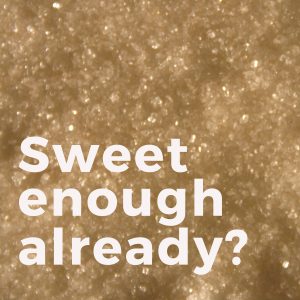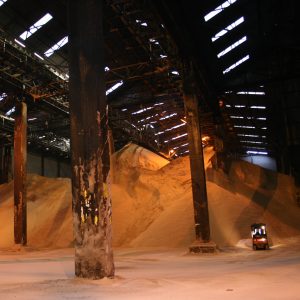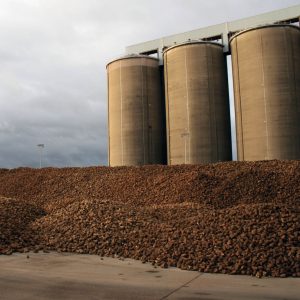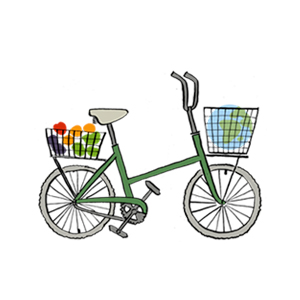 It’s confession time for The Green Shopper:
It’s confession time for The Green Shopper:
I’m a hypocrite.
And I stole a cake from a child.
I try to keep my four-year-old’s food free from refined sugar, but I’ve got a super sweet tooth. When he was given a low-grade cupcake with two centimetres of icing at a birthday party, I snatched it away and gave him some crispy seaweed instead.
Then I scoffed it while he wasn’t looking.
Witnesses were horrified, but my boy wasn’t fussed and even asked for more seaweed!
Let me try and explain… we all know sugar can lead to dental problems, but there’s much more to it than that. Humans are hard-wired to enjoy eating calorific foods. Eating refined sugar delivers glucose into your bloodstream very quickly, leading to an energy rush followed by a slump. These energetic peaks and troughs are pretty tricky for the average adult to negotiate, let alone a four year old. It’s a widespread belief that sugar has a negative effect on the ‘friendly’ bacteria that live in your digestive tract known as your microbiome. This article from MaxLiving has a lot of useful information about sugar and health, alongside links to medical studies.
But we all want to eat sweet stuff, right? Artificial sweeteners such as acesulfame potassium and aspartame have been linked with diabetes and obesity and I try to avoid them too. So what’s the best way to get my fix?
Here’s what I know about sugar (including the hard stuff).
CONVENTIONAL REFINED SUGARS:
Granulated sugar is made from sugar cane (a tropical grass) or sugar beet (a root crop suited to colder climates). When I wrote my first children’s book ‘Lets Bake a Cake’ I spent a year researching the ingredients and visited the Tate & Lyle factory in London (which refines sugar cane juice) and the British Sugar factory in Suffolk (which refines sugar beet).

Sugar cane grows in tropical climates. In the UK, Tate & Lyle import dried cane juice by ship to their refinery on the Thames in London. The molasses from cane sugar is rich in minerals and can be added to refined cane sugar to make light brown sugar, or used as a cooking ingredient*. Some brown cane sugar is less refined: rapadura* and muscovado* are made from raw cane juice and have a high mineral content. When you buy cane sugar, it’s best to look for a brand which is certified organic and Fairtrade. The sugar industry was built on slavery, and in order to be ethical nowadays it’s important to make sure farmers and workers are treated fairly and the environment is respected. The Fairtrade Foundation‘s labelling scheme helps ensure sugar farmers and workers are looked after. Make sure to keep an eye out for their logo.

Sugar beet is a high yielding monoculture crop, which cannot be grown to meet organic standards. Parts of the root are mildly toxic to humans so it has to be refined to remove impurities, which end up as molasses. The beet molasses are then used as animal feed. British Sugar produce the Silver Spoon brand, but use bought-in cane molasses to make their range of ‘brown sugar’.
It’s easy to assume that ‘local food’ must have a lower environmental impact, but with sugar it’s not the case. British Sugar has calculated that 0.6g of CO2 equivalent is produced for every gram of sugar made (not including packaging) which works out as 600g CO2 per 1kg of sugar. Tate & Lyle announced in 2009 that the carbon footprint of its retail cane sugar is 380g of CO2 per 1 kilogram bag, and it’s bulk granulated sugar (for supply to industrial customers) at 300g of CO2 per 1kg.
When I use sugar for baking occasionally, I always try to find organic, fair trade raw cane sugar like this one from Equal Exchange*.
ALTERNATIVE SUGARS:
Maple syrup: Tree crops are a great example of sustainable agriculture. A well-cared-for maple tree can produce sap for as long as 400 years! The Poughkeepsie Journal article Sweet Drips explains more about sustainability and maple industry. Natural Collection sell Meridian organic maple syrup* or if you’re on a budget, Lidl’s own-brand organic maple syrup is great value.
Coconut sugar is also a tree crop, made from the nectar of coconut palm flowers. It can be produced organically, has a low GI and is naturally high in calcium. It’s great for sprinkling, baking and adds a delicious caramelly flavour to coffee. Biona organic coconut palm sugar* is also available from Natural Collection. Palm sugar can be made from a variety of palm trees, but coconut sugar is only from the coconut palm (Cocos nucifera). In case you’re confused, this is not the same sort of tree as palm oil is made from.
Honey: Industrial-scale beekeeping practices include culling, routine antibiotic use, and colony transportation. Don’t forget that as an animal product, honey isn’t vegan. If you choose to eat honey, try to find a local beekeeper. Look in health food shops and farmers markets! The Ethical Consumer’s guide to honey tells you everything you need to know about the honey industry. One of their highest rated is Equal Exchange’s organic honey*.
Stevia is a leaf which has a naturally sweet taste but is actually completely sugar-free. It was first used by indigenous South Americans and there is some controversy about its commercial application. Here’s a bit more info from Ethical Consumer’s guide to soft drinks : ‘A plant that is 300 times sweeter than sugar, and virtually calorie-free, stevia leaves have been used medicinally by the Guarani people in Paraguay and Brazil for centuries. Knowledge of its properties is valuable. Yet, as big companies profiteer, Guarani populations are losing out. Stevia leaves themselves are not used as a commercial sweetener. Instead, steviol glycocides are isolated and purified from the plant. Due to regulations, only the glycocides (not the leaves themselves) can be sold in the US or EU. Commercial companies can therefore control the market, while small-holder farmers in Latin America have no access at all. I’m currently cultivating a Stevia bush and look forward to harvesting the leaves.
For more information, GRACE Communications’ Gabrielle Blavatsky has written a great article called How Sustainable Are Sugar Alternatives? which includes date sugar and agave syrup.
*All links marked with an asterisk are affiliate links. This means The Green Shopper gets a tiny percentage from any sales made after clicking through. This won’t cost you any more, but might pay for my web hosting one day.
**The main reason I ate the confiscated cupcake was to avoid food waste. It was pretty gross, and strengthened my resolve to eat better quality treats.

Hi what about organic molasses? X
I mentioned them in the sugar cane paragraph if you look closely! I haven’t ever cooked with molasses but there are supposed to be many health benefits… I seem to remember Darren making some sort of super healthy blackstrap molasses kefir drink 🙂 Do you use them as a sweetener?
Love your work Ruth, thank you!
? Thanks Ben!